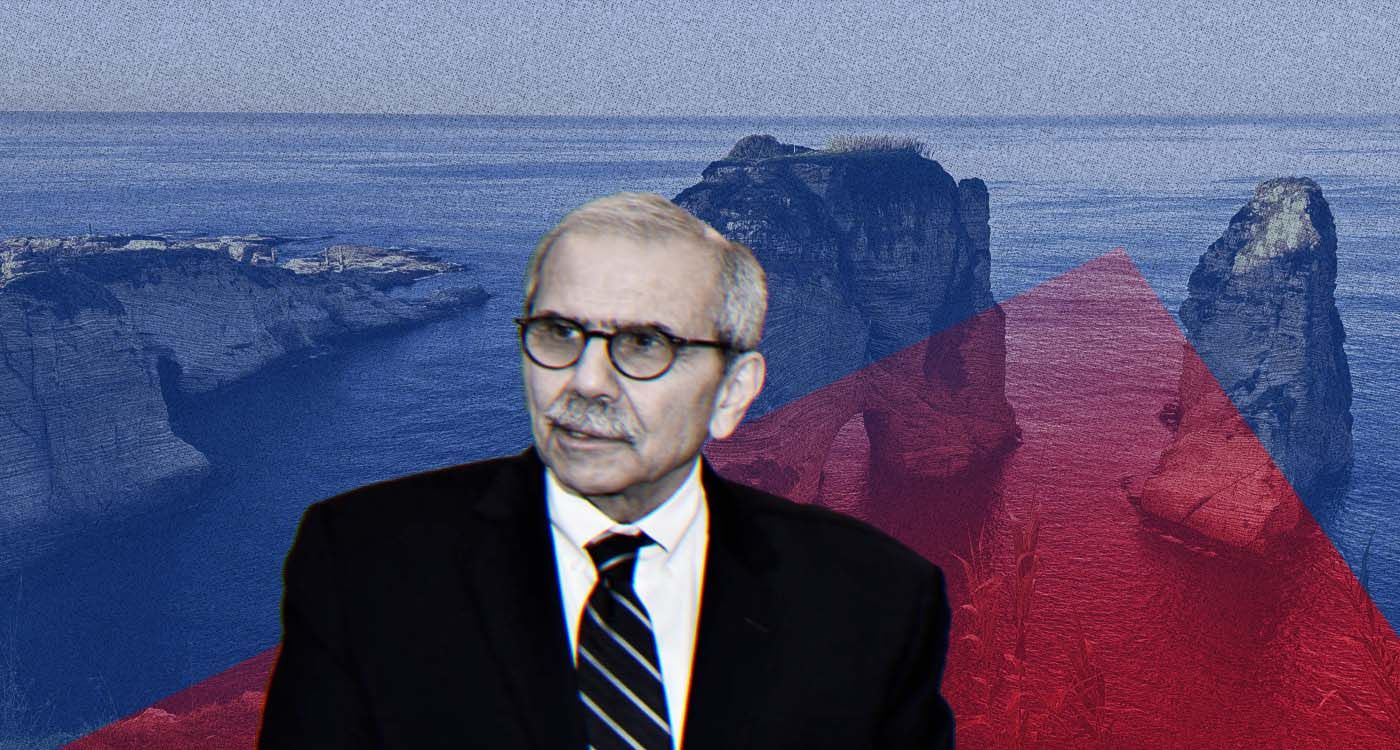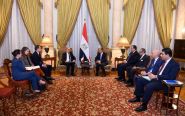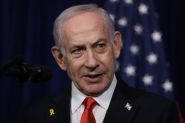
The uprising of Hezbollah’s “parallel state” against the rule of law dominated Lebanese discussions over the weekend, with sovereigntist forces seeing it as another May 7-style move against Prime Minister Nawaf Salam: a potential coup and a shift from coexistence to confrontation.
As local appeasements failed to contain the fallout from Thursday night’s lighting of Raoucheh rock, questions arose about Hezbollah’s ministers in the government—would they boycott cabinet sessions to paralyze decision-making, or resume business as usual after the message had reached Salam?
It is feared that Hezbollah’s recent actions might draw an Israeli military strike, as the group continues to insist that it will not disarm, claiming its arsenal serves a regional mission guided by Iran’s agenda. The group operates as if it were the Supreme Leader, deciding and acting independently of the government. The events in Raoucheh violated the agreement which stipulated a demonstration limited to 500 participants and prohibited the lighting of the rock to mark the first anniversary of Hassan Nasrallah’s assassination.
In a direct challenge to the government, Hezbollah mobilized thousands for the demonstration and ultimately lit the rock—aiming to topple Salam’s cabinet and overturn the state’s decision regarding the monopoly on arms. The group is unlikely to forgive Salam for his disarmament move, which, according to one of its MPs, breached an agreement reached with the then-Army Commander General Joseph Aoun, just before his election as president.
A delegation from the Shia duo (Amal and Hezbollah)—MPs Mohammad Raad and Ali Hassan Khalil—agreed with Aoun on several key principles: limiting Shia ministerial and administrative representation to the duo, confining the application of Resolution 1701 south of the Litani and initiating a national dialogue on a strategy for national security. The MP added, “The discussion focused on principles, because our priority is the resistance. That’s when we cast our votes for Aoun, and he secured 99 votes.”
After the assassination of Hezbollah’s leaders on September 27, 2024, and amid a shifting political landscape at home and in the region, Hezbollah moved toward escalation to assert its influence—transcending laws, customs and regional boundaries. Its actions reinforced statements by Tom Barrack and Lindsey Graham that “the faction will not surrender its weapons, and Israel must be given free rein.” They also echoed Iran’s Supreme Leader Ali Khamenei, “The resistance is not an institution that can be dismantled through political or security operations; it is an identity, a mindset and a living culture deeply rooted in the convictions of the people.” As one of Iran’s military proxies, Hezbollah was joined by Ali Larijani, secretary of Iran’s Supreme National Security Council, in marking the first anniversary of Hassan Nasrallah’s assassination.
The message sent from Raoucheh echoed far beyond Lebanon’s borders. Domestically, it sought to undermine the government and unseat the prime minister from the Grand Serail, overturning the state’s monopoly on arms. Speculation arose that the events constituted a “conspiracy” against the government. Sources close to Salam indicate that the intent was to replace him with a more flexible prime minister—one willing to soften positions and navigate sensitive issues.
Against this backdrop, Salam told visitors that “he will remain in office, will not resign, withdraw or retire, and will continue his project to build a state of institutions, where the law is above all.” He expressed concern over the performance of certain officials and instructed the Ministers of Justice, Interior and Defense to launch investigations—including into Hezbollah figures such as Wafiq Safa—and to revoke the licenses of organizations and associations that participated in the commemoration in violation of the law. Salam’s resolute stance has rallied political forces around him, with many urging him to hold firm.
On the international front, diplomatic sources framed Hezbollah’s escalation within broader tensions over Iran’s nuclear program. The move followed the failure of talks with the European troika and a Russian-Chinese effort at the UN Security Council to postpone the renewal of international sanctions on Iran for six months. As such, the United Nations reinstated sanctions over Iran’s nuclear activities. US Secretary of State Marco Rubio described the decision as a clear message that the world will not bow to Iranian threats and that Tehran will be held accountable, while urging Iran to enter direct negotiations with Washington.
The Raoucheh events confirm that Hezbollah continues to dominate state decision-making, acting from a position of excessive power. Meanwhile, the government remains stalled, awaiting the outcome of a White House meeting between President Donald Trump and Israeli Prime Minister Benjamin Netanyahu to implement a Gaza ceasefire and outline a regional peace roadmap.
Diplomatic sources indicate that Lindsey Graham’s so-called “Plan B” has now emerged as a contingency. They fear Israel could launch a “mini-war” against Hezbollah, targeting its leadership and arsenal in the Beqaa Valley with a decisive strike aimed at achieving strategic objectives and dismantling Iran’s remaining regional proxies after Syria, Iraq, Gaza and Yemen.
Political forces are currently awaiting the army’s first monthly report, due on October 6, on the implementation of the state’s monopoly on arms. In this context, the international conference scheduled in Riyadh in mid-October to support the Lebanese army has been postponed, and all related activities aimed at assisting Lebanon have been suspended until the state’s monopoly on arms is fully enforced.
In light of these developments, the questions loom large: Will Salam back down or continue the confrontation? How will relations among the presidency, the prime minister’s office and the speaker of parliament evolve in the coming period? Will “Plan B” be implemented, or can Lebanon withstand the full force of this crisis? The answers will unfold in the days ahead.




Comments